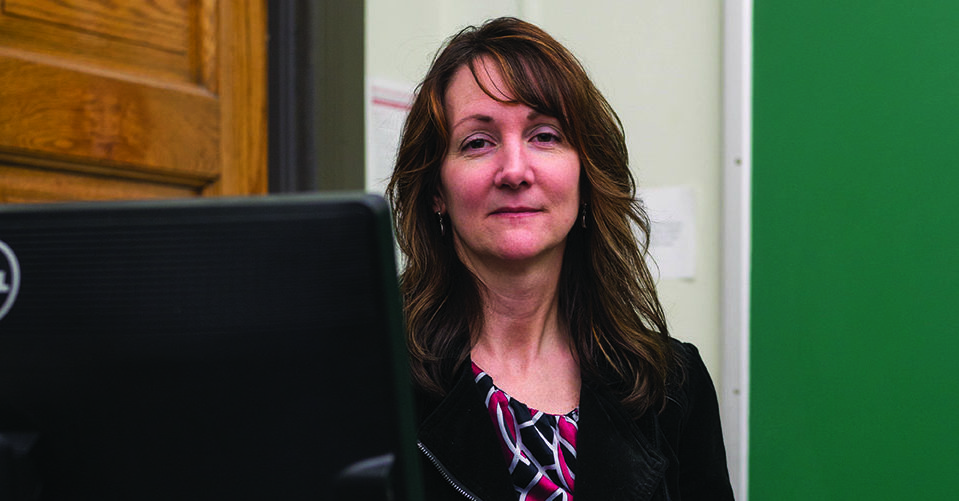As a practicing psychologist, there are two things about Dr. Patti Kimbel that might surprise you. First, she’s been in therapy herself. Second, she’s quick to point out that psychotherapy is not a cure-all.
When it comes to the study of human behavior and the treatment of mental health problems, Kimbel has seen the issues from many levels, ranging from case worker to hospital administrator to her current role as director of training for graduate students in clinical psychology at Roosevelt University in Chicago. And although the broader world of health care is facing many uncertainties, Kimbel is confident of two things – there will always be a demand for professional services, and the most expedient solutions to patients’ problems aren’t always the best.
Kimbel sees 35 to 40 clients in her private practice in suburban Gurnee, which opened in 2001. She is aware some of her colleagues believe the goal of health care providers should be to work themselves out of a job, but she doesn’t buy it.
“People will always need help,” said Kimbel, who worked her way up from postdoctoral fellow to director of behavioral health services at Vista Medical Center West, a for-profit hospital serving an underprivileged community. “I don’t think there will ever be a time when they don’t.”
That connection is one of the reasons she pursued a career in psychology in the first place. Her father, who is also a psychologist, gifted her a copy of “The Road Less Traveled,” written by a practicing psychiatrist Scott Peck. The book prompted her to enter the mental health field.
“I was attracted to and compelled by the intimacy of the relationship between the therapist and client,” Kimbel said.
That intimacy is being threatened on several fronts. One of the biggest challenges facing the entire medical field today is the societal desire for the quick fix, which often comes down to taking a pill instead of allowing a more meaningful treatment to run its course, Kimbel said.
“I think where the practice of medicine has gone, it’s in the direction of, ‘Just give a pill.’ Physicians are the number one prescribers of anti-anxiety and anti-depression medication in this country. Their approach is, ‘Here, take this pill.’ It’s not, ‘Why don’t you seek some counseling?’ I would even be satisfied if they said, ‘Take this pill and see a counselor.’ “
Not that counseling is the only or ultimate solution, she adds.
“Coming to therapy doesn’t cure somebody,” Kimbel said. “Part of [therapy’s success] depends on the effort the client is willing to put into therapy and work with the process. They have to take action and make changes in their lives, outside of the therapy session.”
Kimbel has experience in Veterans Affairs counseling centers, day schools, certification programs and hospital settings. At Vista, she worked her way up from postdoctoral fellow to director of behavioral health services.
Two of Kimbel’s former colleagues described the hospital environment as disquieting.
The job was “a good fit for someone who enjoys chaos at work, so to speak,” said Vadim Polonsky, a licensed social worker. “It’s fast-paced, it’s exciting, it’s stressful, it’s overwhelming at times [and] it’s a good time.”
“I was attracted to and compelled by the intimacy of the relationship between the therapist and client.”
— Patti Kimbel, psychologist
In her role as an administrator with her finger on everything, Kimbel said she was able to keep stress under control, although she was by no means immune.
“Therapists are no different than the general public, and they can also struggle with depression or anxiety,” Kimbel said. “I’ve been in therapy before. Most therapists have at some point in their life.”
Kimbel said she sought therapy as a graduate student for two reasons – to deal with a break-up and to understand therapy from the client’s perspective.
For Kimbel, the majority of her stress at Vista came not from patients but from dealing with bosses she described as challenging or lacking in the knowledge to back up their decisions.
“I’d rather deal with a patient issue than a staff issue any day,” Kimbel said.
Jill Sanderson-Davis, a licensed social worker and Kimbel’s colleague at Vista, remembered the squeeze of the hospital’s money issues.
“[Vista] lacked resources. They weren’t growing the program…and they didn’t always have enough staff to handle things,” Sanderson-Davis said. “I don’t blame that on Patti. It’s a for-profit hospital, and its investments were in other parts of the hospital that I think were more profitable for them.”
Through it all, Kimbel has managed to balance her work and personal life, which includes a dog, a fiancé and frequent workouts. Her cool, calm and collected demeanor helps her enjoy the relative quiet of one world, while steeling her for the pressure of the other.
Because when the doctor is in, Kimbel is all business.



